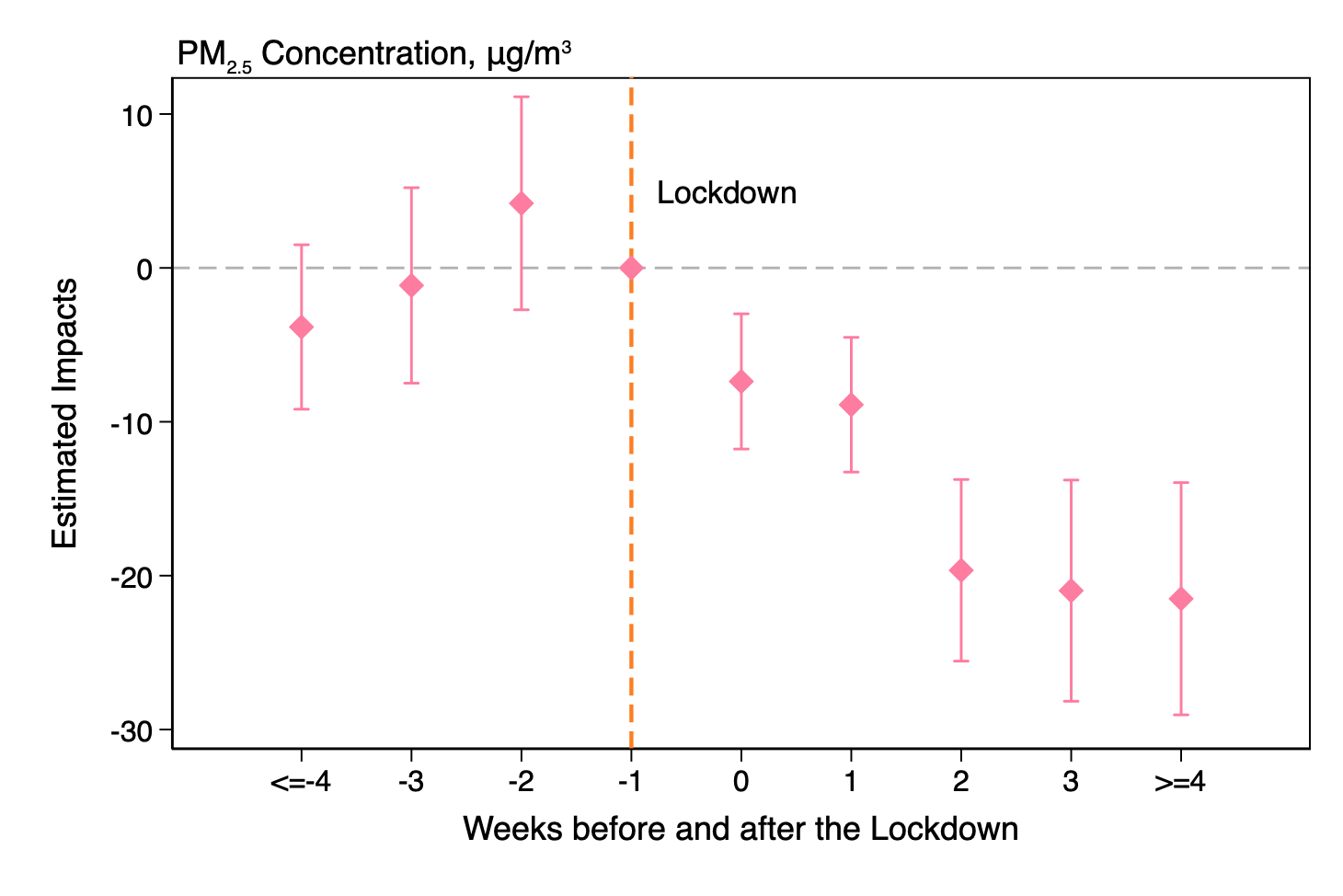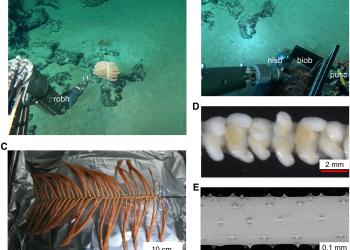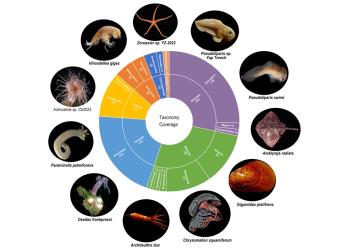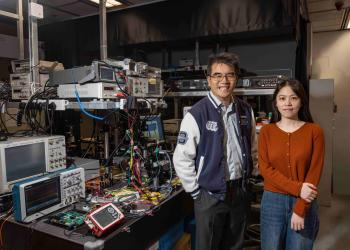HKUST Study Finds City Lockdown Improves Air Quality May Delay 24,000 – 36,000 Early Death Cases
A team of researchers at the Hong Kong University of Science and Technology (HKUST) estimated that about 24,000 to 36,000 early mortality cases caused by air pollution may have been delayed due to Mainland China’s earlier mobility-restriction management (city lockdown*) to curb the spread of COVID-19, as such measures have brought down the amount of Fine Particulate Matter (PM2.5) at lockdown cities by a notably 25 per cent year-on-year during the first two months of this year - significantly elevated the region’s air quality.

Led by Prof. HE Guojun, Assistant Professor of Social Science and Institute for Emerging Market Studies at HKUST, the research team tracked air quality data of 324 large and medium-sized mainland cities from January 1 to March 1 this year - including 95 cities which had been locked down. The team found that the concentration of PM2.5 has dropped by 25% in the lockdown areas over the period. In densely populated cities in the North - such as Zhengzhou, capital of Henan Province which still rely largely on fossil fuel for power, the drop even reached 50%. The improvement of air quality in big industrial cities has also benefited cities at their vicinity - which saw a drop of some 8% in the concentration of PM2.5 over the same period. Result of the study was recently published in "Nature Sustainability" - a journal affiliated to the prestigious scientific journal "Nature".
Read more about relevant research:
HKUST New App (PRAISE-HK) Uses Street-Level Air Quality Data to Reduce Personal Exposure and Health Risk
Backed by other international studies, Particulate Matter (PM) emitted from fossil fuel burning is considered the most fatal form of air pollution. PM2.5 – in particular, is not only detrimental to human health, but can also suspend in air for weeks and spread hundreds or thousands of kilometers away, thereby increasing the susceptibility of inhalation by humans before the particles were deposited to the ground.

Being a veteran researcher in air pollution and human health, Prof. He, also a research director of the Energy Policy Institute at University of Chicago - China Division (EPIC-China), has found in his previous research that for every weekly drop of 10-percentage points in a city’s PM2.5, the mortality rate there caused by respiratory diseases would also reduce by about 2.2-3.25%. Based on such estimate, although city lockdown has brought significant economic losses to the society, it may also has unexpectedly delayed about 24,000 to 36,000 early mortality cases induced by air pollution.
Prof. He said, "We don’t want to overstate the benefits of the pandemic or city lockdown, we wish, however, to raise public awareness on environmental pollution and its relevant hazards. This study proves that industrial activities and human traffic are two major sources of environmental pollution. I hope the public would realize it’s everyone’s responsibility to protect the environment."
The study also found that despite major suspensions of industrial and commercial activities in the lockdown cities, the resulting PM 2.5 concentration in those places – despite a significant fall, is still more than four times above the recommended level of the World Health Organization (WHO). It shows that Mainland China would have to dedicate more efforts in tackle air pollution, such as adopting more clean energy or gradually reducing its dependence on fossil fuel like coal.
Find out more on HKUST’s Efforts to help Fight COVID-19 Pandemic:
https://covid19info.ust.hk/hkust-efforts
Remark*: Lockdown of a city means reducing the place’s public and private transportation to a minimum, canceling unnecessary commercial activities and prohibit any group gatherings.
About The Hong Kong University of Science and Technology
The Hong Kong University of Science and Technology (HKUST) (www.ust.hk) is a world-class research intensive university that focuses on science, technology and business as well as humanities and social science. HKUST offers an international campus, and a holistic and interdisciplinary pedagogy to nurture well-rounded graduates with global vision, a strong entrepreneurial spirit and innovative thinking. HKUST attained the highest proportion of internationally excellent research work in the Research Assessment Exercise 2014 of Hong Kong’s University Grants Committee, and is ranked as the world’s best young university in Times Higher Education’s Young University Rankings 2020. Its graduates were ranked 10th worldwide and top in Greater China in Global University Employability Survey 2019.
For media enquiries, please contact:
Anita Lam
Tel: 2358 6313
Email: anitalam@ust.hk
Sam Li
Tel: 2358 6317
Email: liyongning@ust.hk









